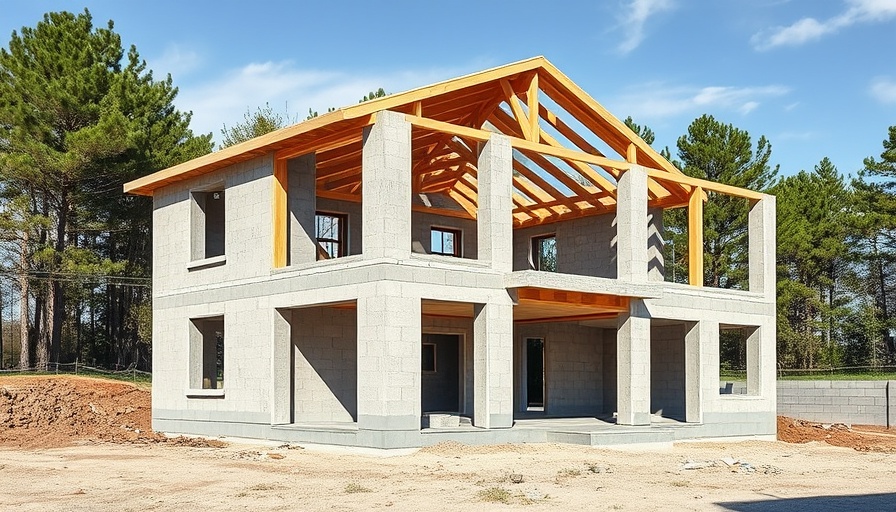
Deltona's New Residential Development Moratorium: A Necessary Pause?
In a bold move that has sparked significant community discourse, the Deltona City Council has enacted a temporary moratorium on new residential developments. Although positioned as a measure to control growth and prioritize community safety, this decision throws local governance into conflict with state legislation — specifically, Senate Bill 180. This bill, which critics argue undermines local authority, poses a serious challenge for Deltona’s leaders as they navigate the contentious terrain of urban development amid legal constraints.
In 'Deltona development moratorium passes despite concerns raised over new Florida law', the discussion dives into the complex implications of local governance in the context of state legislation, prompting a broader analysis of community autonomy.
Understanding the Implications of Senate Bill 180
Senate Bill 180, recently enacted in Florida, complicates the situation for cities like Deltona. This legislation invalidates local moratoriums, retroactive from August 2024 to August 2027, thus limiting the latitude for municipalities to manage growth effectively. As residents voiced their concerns at the council meeting, one expressed her belief that the well-being of citizens should take precedence over developer interests. This legal framework presents a pressing question: can Deltona maintain its autonomy in decision-making, or will it be forced to bend to state directives?
Local Voices: A Clash of Perspectives
The council meeting illustrated a vivid clash of opinions among residents. Supporters of the moratorium contend that a pause in development is vital to preserve quality of life, whereas opponents view this move as a direct challenge to the governor, fearing repercussions from the state. Stephanie Cox, a vocal critic of Senate Bill 180, articulated the sentiment that home rule is crucial for local governance, arguing that state intervention undermines the community's ability to dictate its future.
The Uncertain Path Ahead: What Lies in Store for Deltona?
As the City Council grapples with this decision, the moratorium's future hangs in limbo. Council members have a 14-day window to repeal their action, should they deem it necessary. This could lead to considerable uncertainty in the local real estate market and a larger conversation regarding the balance of power between state and local governments. If the moratorium stands, how will it shape the dynamic of urban development in Deltona?
Broader Impact: State-Level Repercussions of Local Decisions
The deliberation over the moratorium highlights a key intersection between local governance and state-level policies that may serve to reshape neighborhood dynamics across Florida. As community leaders weigh the implications of their decisions against state laws, the outcome in Deltona may set a precedent for other municipalities facing similar challenges. This tension between state and local governance raises questions about the level of autonomy local governments should possess in managing their growth.
Looking Forward: Community Engagement and Awareness
With the fate of the moratorium still in question, community engagement remains essential. It is crucial for residents to stay informed about local developments and participate in discussions that impact their homes. Local media and community forums play a key role in keeping citizens updated, and civic participation will be critical as Deltona navigates its next steps amidst the complexities of state interference.
In light of these developments, residents are encouraged to attend future council meetings and express their opinions. Empowering oneself through knowledge and involvement can help shape a future that aligns with the community's values.
By exploring the implications of Senate Bill 180 and the City Council’s moratorium decision, we gain insights into not only local governance but also broader themes of legislative authority, community engagement, and urban development in Florida. As Deltona moves forward, the eyes of neighboring communities and state leaders will be closely watching to see how this balance unfolds.
 Add Row
Add Row  Add
Add 






Write A Comment